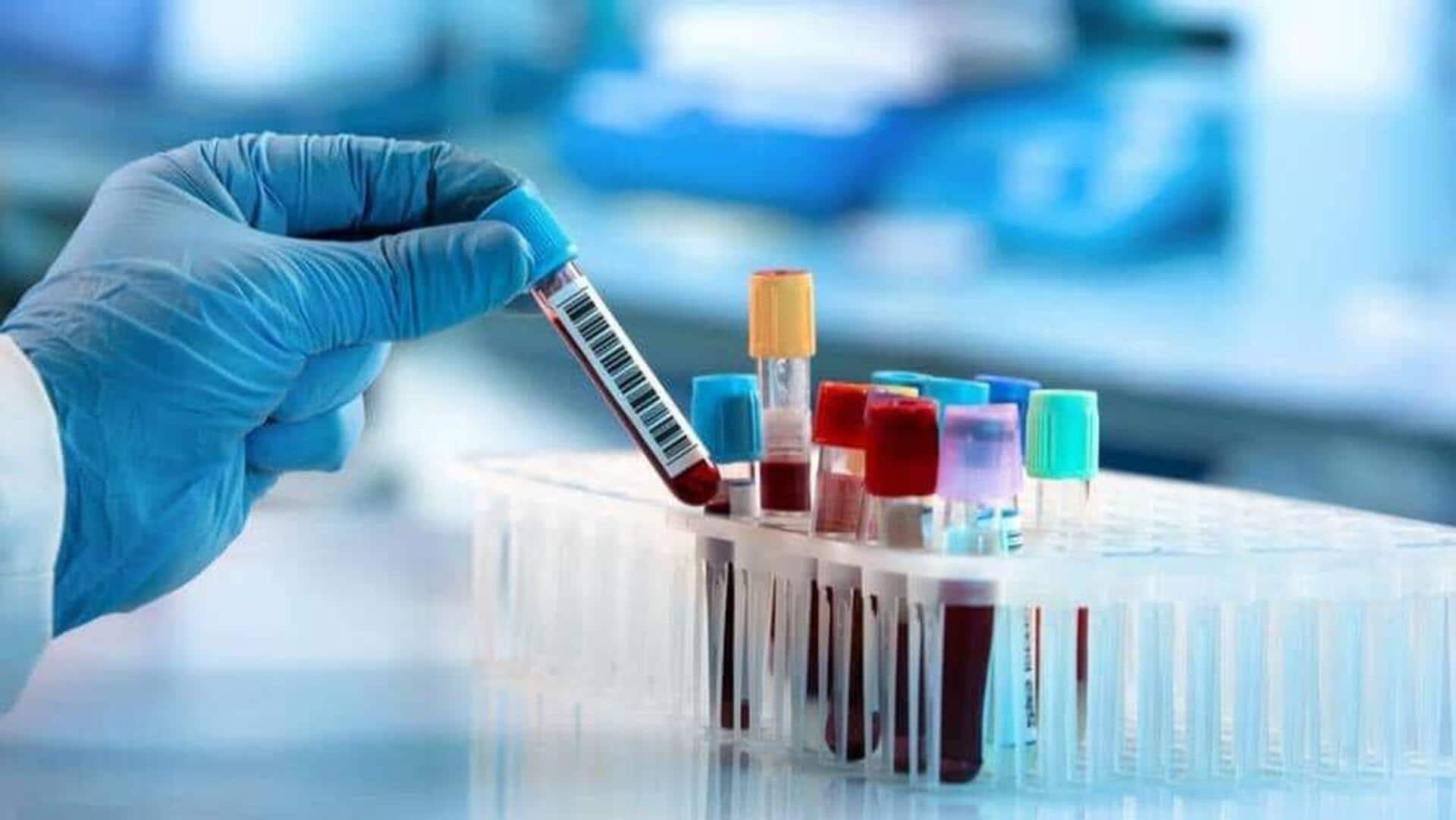
Simple blood test can predict diseases 10 years in advance
What's the story
A study has shown that a pinprick blood test could detect diseases up to a decade before symptoms appear. The research, conducted by the UK Biobank, analyzed nearly 250 different proteins, sugars, fats and other compounds in blood samples from half a million volunteers. The findings provide detailed insights into individual physiology and can help predict the risk of various diseases like diabetes, heart disease and cancer.
Disease indicators
Metabolic profiles: A window into disease prediction
The complex molecular profiles obtained from the blood samples give a detailed snapshot of each person's physiology. When combined with medical records and death registries, these profiles can predict the risk of a range of diseases. Dr. Joy Edwards-Hicks from the University of Edinburgh said this new predictive test will shift healthcare's focus toward preventing diseases rather than just treating them.
Metabolic insights
Metabolites: Key players in disease development and progression
The UK Biobank, in collaboration with Nightingale Health, measured hundreds of key metabolites in blood samples. These include sugars, amino acids, fats and waste products like urea. Changes in these metabolic profiles can indicate the onset or progression of diseases. For example, an unhealthy liver may lead to higher ammonia levels while a damaged kidney could raise urea and creatine levels.
Health snapshot
Metabolic profiles offer comprehensive view of health
Metabolic profiles offer a more comprehensive view of health than other tests because they are influenced by genetics, environment, and lifestyle factors such as diet and exercise. Dr. Julian Mutz from King's College London explained that these profiles provide a snapshot of an individual's physiological state, capturing both genetic predisposition and environmental exposures. This dynamic nature makes them highly valuable in predicting disease risk.
Data advantage
500,000 metabolic profiles can help with disease prediction
The availability of 500,000 metabolic profiles from the UK Biobank gives researchers a unique advantage. They can now develop tests that reliably detect early signs of disease across a wider range of conditions. Dr. Mutz uses these profiles to predict dementia risk and hopes that this new data will help in predicting rarer forms of neurodegenerative diseases such as frontotemporal dementia.
Research implications
Gender differences in aging and disease development
Dr. Najaf Amin, a molecular epidemiologist at the University of Oxford, used the 500,000 metabolic profiles to study how males and females age and develop age-related diseases like cancer. The data revealed differences between the sexes in this regard. This research could pave the way for further studies on whether and how sex influences drug efficacy.